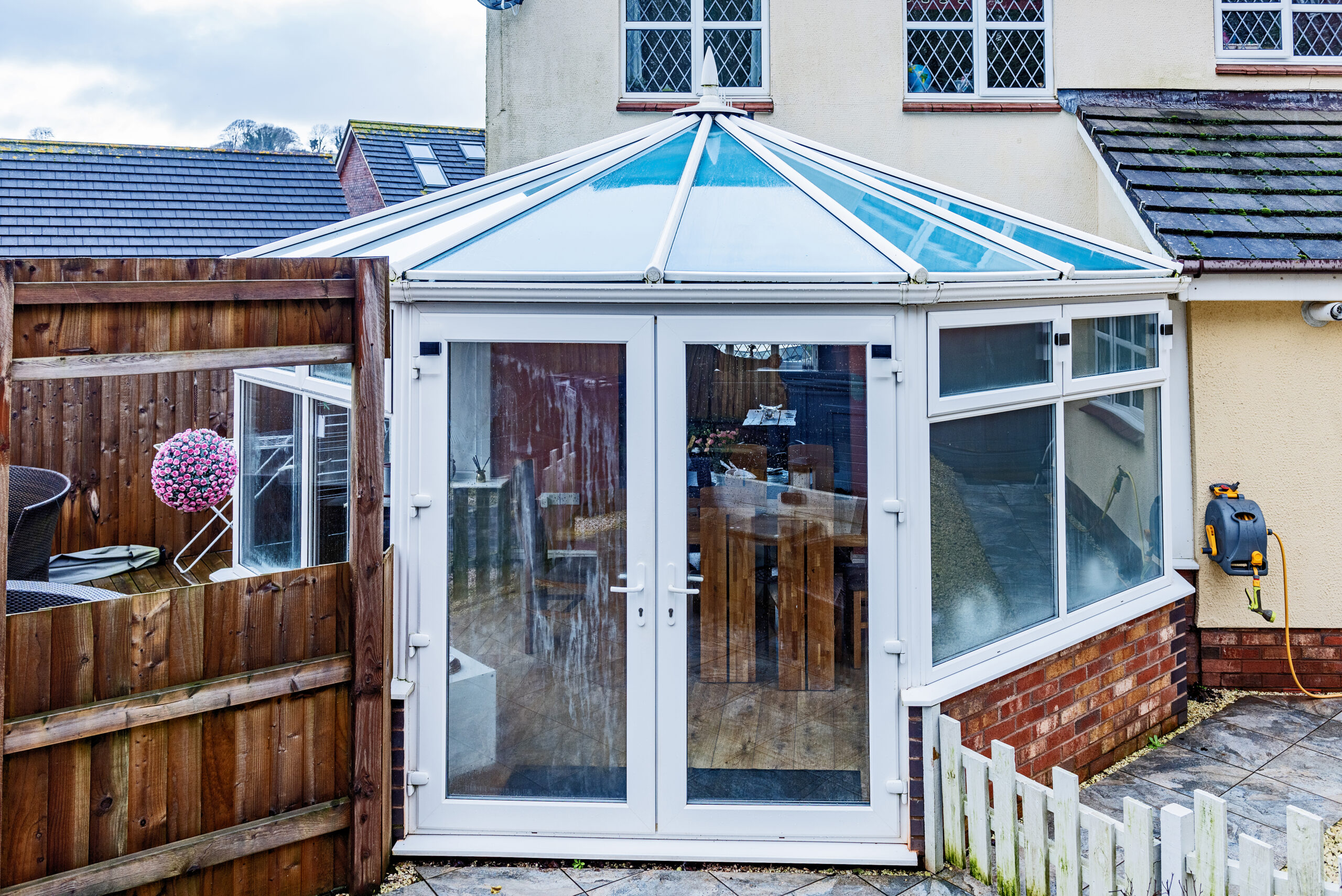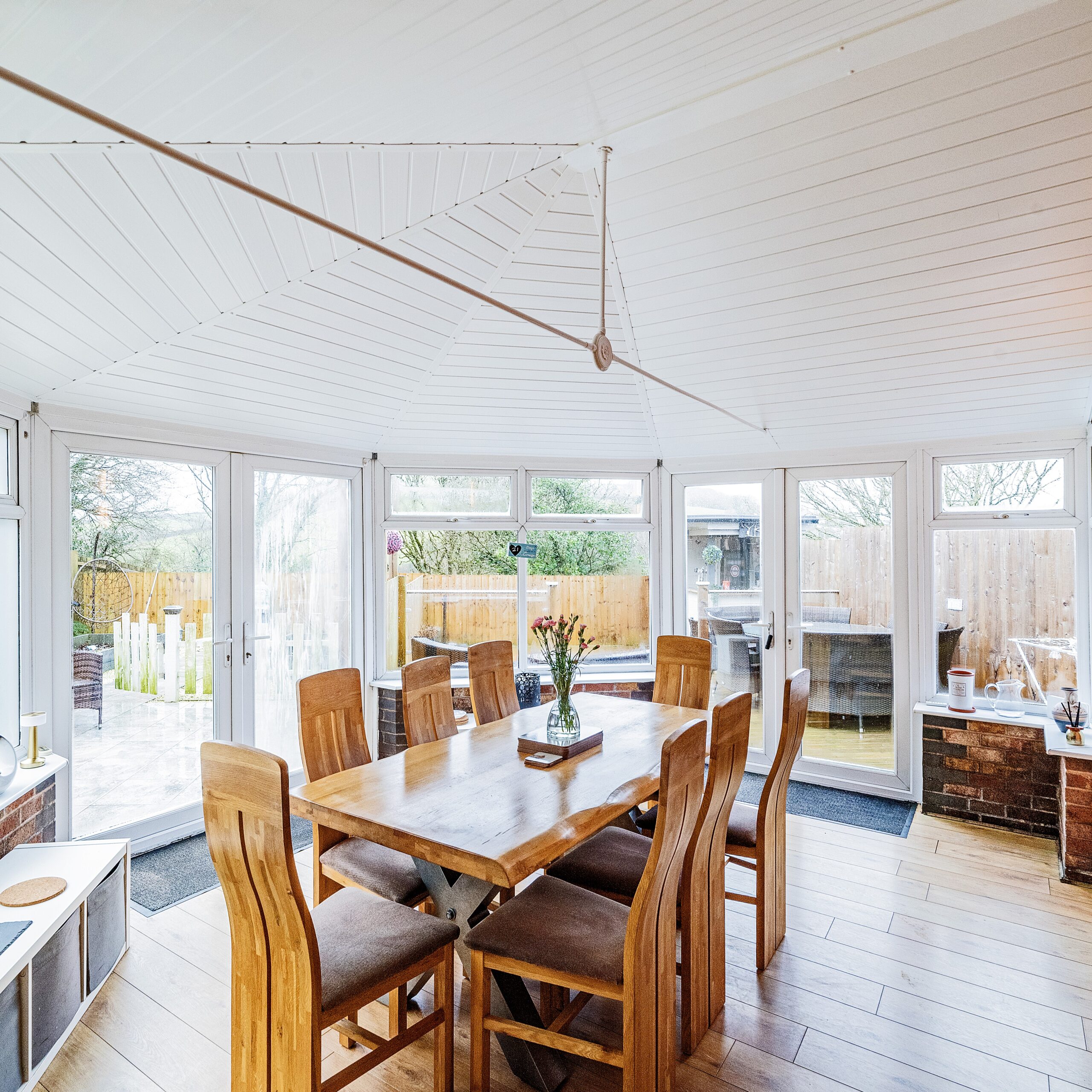Condensation in conservatories is a common issue many homeowners face. It can lead to mould, discomfort, and even structural damage. Understanding how to manage this problem is crucial for maintaining a comfortable space.
Temperature differences between the inside and outside often cause condensation. This results in excess moisture, which can be problematic. Fortunately, there are effective ways to tackle this issue.
Proper moisture control is key to preventing condensation. Simple steps can make a significant difference. From improving ventilation to using dehumidifiers, there are many solutions available.
This guide will provide practical tips to help you manage condensation. With these strategies, you can enjoy a moisture-free conservatory.

Understanding Condensation in Conservatories
Condensation occurs when warm, moist air meets cold surfaces. In conservatories, this is a frequent problem due to glass surfaces and temperature changes. This meeting results in water droplets forming on windows and other surfaces.
Here’s why this happens in a conservatory:
- Temperature Differences: Glass cools quickly, making it prone to condensation.
- High Humidity: Limited airflow traps moisture, raising humidity levels
- Poor Insulation: Cold air seeps in, causing temperature fluctuations.
Addressing these factors is essential for effective moisture control. Recognising the underlying causes helps you implement the right condensation solutions. By tackling these issues, you can protect your conservatory from unwanted moisture.
Why Moisture Control Matters
Controlling moisture in your conservatory is crucial for several reasons. Excess moisture can lead to significant problems that affect both your health and your conservatory’s structure.
Here are key impacts of unchecked condensation:
- Mould Growth: High humidity encourages mould, which can harm health.
- Structural Damage: Continuous moisture may weaken walls and wood.
- Uncomfortable Environment: A damp atmosphere is not pleasant.
Taking charge of moisture control prevents these issues. It also ensures your conservatory remains a comfortable and healthy living space for everyone. Implementing effective condensation solutions can save you time and money in the long run.
Top Tips for Preventing Condensation in Your Conservatory
Condensation in conservatories can be managed effectively with the right strategies. A few simple changes can dramatically reduce moisture problems. The following tips will guide you in keeping your conservatory dry and enjoyable.
By implementing these solutions, you create a healthier and more comfortable space. These strategies will help in maintaining the aesthetic and structural integrity of your conservatory.
1. Improve Ventilation
Proper ventilation is essential for minimizing condensation in any space. Increased airflow helps reduce moisture buildup on windows and surfaces.
Consider these methods to improve ventilation:
- Install Vents: Roof or wall vents can significantly enhance air circulation.
- Open Windows: Regularly open windows to allow fresh air in.
- Use Fans: Ceiling or portable fans can help keep the air moving.
These steps can promote better air exchange and lessen humidity. Effective ventilation is a straightforward, yet crucial method to control condensation in your conservatory.
2. Use Dehumidifiers and Moisture Absorbers
Dehumidifiers are a practical solution for reducing indoor humidity. They actively extract moisture, keeping the air dry and comfortable.
Consider adding these options to your conservatory:
- Silica Gel Packets: Ideal for smaller moisture problems.
- Electric Dehumidifier: Efficiently lowers humidity levels quickly.
- Moisture Traps: Easy to use and great for absorbing excess moisture.
These tools effectively manage moisture control, combating potential condensation problems. Using such devices will greatly reduce the likelihood of condensation-related issues.
3. Regular Cleaning and Maintenance
Regular cleaning of windows and surfaces prevents moisture buildup. When unchecked, moisture invites mould growth and damage.
Implement these maintenance tasks:
- Wipe Surfaces: Regularly wipe windows with a dry cloth.
- Check Seals: Periodically check window and door seals for leaks.
- Clear Gutter: Keep gutters clear to ensure proper drainage.
Routine cleaning and maintenance are key in the fight against condensation. Staying proactive keeps your conservatory in good condition.
4. Insulate Your Conservatory
Insulation plays a critical role in maintaining a steady temperature. Proper insulation prevents heat from escaping, thus reducing the risk of condensation.
Here’s how you can insulate your conservatory:
- Wall Insulation: Installing insulation panels can be effective.
- Thermal Blinds: Blinds help keep warmth in during colder months.
- Roof Insulation: Internal roof insulation can also aid thermal efficiency.
These insulating measures can significantly impact your conservatory’s climate. Insulation helps maintain warmth, leading to reduced condensation.
When to Seek Professional Condensation Solutions
If DIY methods don’t resolve the condensation in your conservatory, it may be time to consult experts. Persistent moisture issues can indicate deeper structural problems. Professionals offer advanced solutions tailored to your needs. Their expertise ensures an effective approach, safeguarding your conservatory’s structure and your peace of mind.
This is where we come in!!
Our conservatory roof insulation systems are specifically designed to help reduce the risk of condensation by creating a consistent internal temperature and preventing warm, moist air from meeting cold surfaces. Traditional conservatories often suffer from poor thermal performance, which leads to cold spots where condensation forms. By installing our high-performance insulation, we minimise temperature fluctuations and improve airflow, helping to maintain a dry and comfortable environment all year round. This not only protects your conservatory from damp and mould but also enhances it’s overall energy efficiency and comfort.
Contact us HERE today and we will be more than happy to help advise you on whats best for you.




